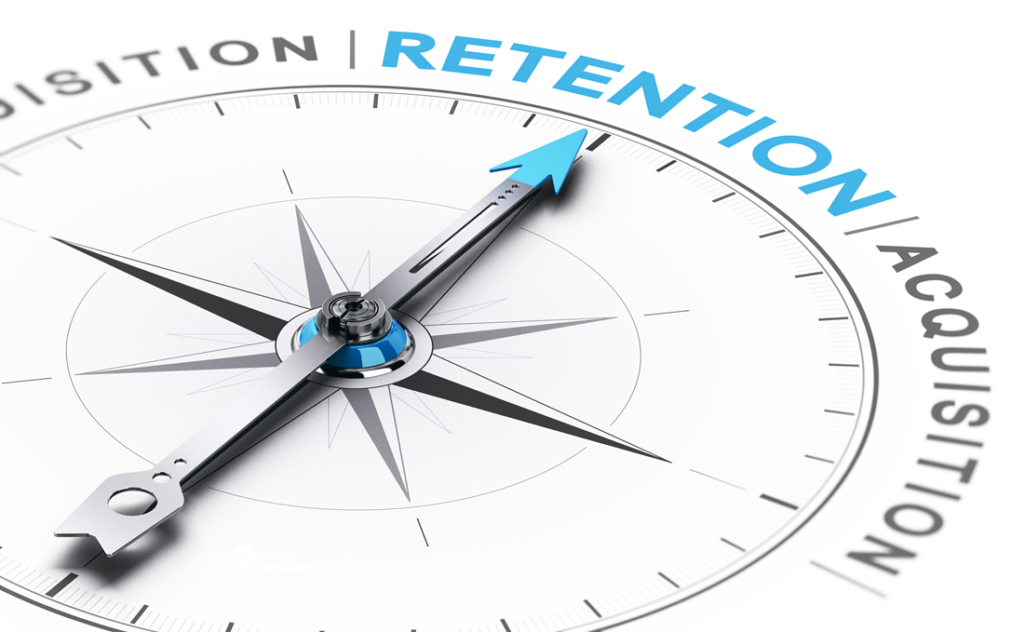The future of work is here, and it's changing faster than ever before. New technologies emerge alarmingly, customer demands evolve constantly, and work continuously transforms. To navigate these complexities and thrive in this ever-shifting landscape, organizations need a workforce equipped with the latest skills, adaptability, and resilience to keep pace with change. Building a future-proof workforce is more than just skills.
In today's competitive talent market, retaining skilled employees is a critical business concern. A 2023 LinkedIn survey revealed a staggering statistic: 72% of talent professionals report difficulty filling open positions due to a lack of qualified candidates. This talent shortage translates into a significant financial burden for organizations. The cost of replacing a lost employee can range from one-half to twice their annual salary, depending on the role and industry. These costs include recruiting, onboarding, and lost productivity during the transition.
So, what defines a future-proof employee? It's not just someone with a specific set of skills, although that's certainly important. A future-proof employee thrives within your organization, possesses a growth mindset, and is committed to continuous learning. They are adaptable and resilient, embracing change and navigating new challenges. They are also highly engaged and motivated, taking ownership of their work and contributing to the organization's success.
Building a strong employee experience (EX) is key to attracting and retaining top talent. A positive EX fosters a work environment where employees feel valued, motivated, and empowered to do their best work. According to a 2022 Gallup report, highly engaged employees are 21% more profitable, have 17% higher sales productivity, and are 12% less likely to leave their jobs. Here are some key elements that contribute to a strong employee experience:

By offering a robust Learning and Development (L&D) program, you showcase your commitment to employee growth and foster a culture of continuous learning. L&D programs go beyond simply imparting technical skills; they can equip employees with the soft skills essential for future-proof success. These skills include critical thinking, problem-solving, communication, collaboration, and adaptability. Effective L&D programs empower employees to take ownership of their skill development and stay ahead of the curve in a rapidly changing world.
Investing in your skills development offers numerous advantages for employees, making them more valuable assets in the job market and fostering a sense of career ownership. Here are some key benefits:
Earlier in my career at Reebok International, I led a team in the athletic footwear division. We constantly pushed boundaries, designing and developing new technologies for global markets. Juggling international projects with tight deadlines was a daily challenge. Recognizing this, the company invested in our growth by sending us to a group coaching session in Hong Kong.
The focus of the session? Time management. While it might seem like a basic skill, the training was eye-opening. We learned practical strategies to prioritize tasks, delegate effectively, and avoid burnout. It wasn't just about ticking things off a list; it was about working smarter, not harder, to achieve our ambitious goals.
The impact was immediate. We returned with a renewed sense of focus and collaboration. We were able to manage our time more effectively, meet deadlines consistently, and even push the boundaries of innovation. This experience solidified my belief in the power of skills development – not just for individual growth but also for overall team success.
While measuring the precise ROI of L&D initiatives can be challenging, tracking key metrics can provide valuable insights. Consider tracking metrics like employee engagement in training, improved job performance after training completion, and retention rates.
Building a future-proof workforce requires a holistic approach. Invest in a robust L&D program and initiatives cultivating a positive employee experience.
By prioritizing skills development and employee well-being, you can build a resilient and adaptable workforce ready to thrive in the ever-evolving world of work.
6 min readFor decades, the executive search landscape resembled a gilded cage, its doors guarded by stone sentinels labeled "experience." Resumes boasting years at the helm of industry titans and pedigrees etched in ivy-league halls held the ultimate key. They cast long shadows over individuals whose brilliance shone in less conventional arenas. This strict adherence to experience served us well in a more predictable era. Today's dynamic environment presents challenges that require a new currency of executive leadership in 2024.
Technological Advancements: Buffeted by seismic forces, the fabric of business, the tectonic plates of leadership are on the move. Gone are the days of rigid hierarchies and siloed expertise; agility and adaptability are now the new currency of success.
Inclusive Leadership: Beyond the technological tsunami, the tide of inclusive leadership is rising. We're awakening to the richness of diverse perspectives and the untapped potential locked away within underrepresented talent pools. These underrepresented individuals possess the skills and vision to revolutionize leadership.
The Imperative for Agility: This convergence of technology, agility, and the urgent need for inclusivity – creates a perfect storm. The rise of skills-based hiring. It's not just about dethroning experience. It's about recognizing its limitations in this brave new world and embracing a more nuanced, future-proof approach to leadership selection.
Adaptability, Innovative Spirit, and Diverse Skill Sets: This progressive wave isn't just a ripple. It's a tsunami poised to reshape the very criteria by which we evaluate leadership potential. It's about building an executive ecosystem that thrives on agility and inclusivity. Ultimately, it thrives on the raw potential of human skill.
This shift means everything for the future of leadership. It's an invitation to step outside the gilded cage and embrace the power of potential. Rewrite the future of leadership, one transformative skill at a time.

Technological advancements: The rapid pace of technological disruption has created entirely new industries and fundamentally reshaped existing ones. Leaders must be adaptable and possess data analysis, artificial intelligence, and digital transformation skills. This is required to navigate this ever-evolving landscape.
Disruption and volatility: Traditional business models are under constant threat from innovative startups and shifting consumer preferences. Organizations need agile leaders who can think outside the box. Leaders who embrace change, and make quick decisions in the face of uncertainty.
Globalized economy: The interconnectedness of the global economy requires leaders with diverse perspectives and cultural competency. Skills in communication, collaboration, and cross-cultural understanding are crucial for navigating complex international partnerships and markets.
Fourth, Shifting Talent Pools: The demographics of the workforce are changing, with younger generations bringing new skills and expectations to the table. Organizations should move beyond outdated notions of experience. They should value transferable skills and innovative approaches from talent of all ages and backgrounds.
Myopia of Experience: Focusing solely on experience can lead to overlooking talented individuals who may not have traditional backgrounds or lengthy tenures. Skills-based hiring opens the door to fresh perspectives and diverse expertise that can fuel innovation and growth.
Rigidity and Inflexibility: Leaders selected based on past experience may struggle to adapt to new challenges and embrace change. Skills-based hiring focuses on identifying individuals with adaptable skillsets who can learn and grow in response to evolving demands.
Bias and Blind Spots: Experience-based hiring can perpetuate unconscious biases that favor specific demographics or backgrounds. Focusing on skills levels the playing field and creates a more inclusive talent pool.
Fourth, Limited Talent Pool: Hiring managers should not consider only candidates with long track records. Skills-based hiring expands the talent pool and unlocks access to a wider range of diverse and promising individuals.
The implications of this shift are nothing short of revolutionary. Organizations should seek out individuals with the right skills for the future. This opens the door to a whole new generation of leaders, a vibrant tapestry woven with:
Emerging Leaders: Young professionals with cutting-edge expertise in areas like data analytics and artificial intelligence are emerging leaders. In addition, CEOs with data analysis skills, and cross-cultural teams with multilingual communication skills can now compete on a level playing field. Their fresh perspectives and innovative approaches are no longer relegated to the sidelines.
Career Changers: Individuals with transferable skills honed in diverse industries can bring their rich tapestry of experience to the table. They offer solutions informed by a kaleidoscope of perspectives.
Underrepresented Talent: By focusing on skills, organizations can move beyond the unconscious biases that often lurk in the shadows of experience-based hiring. This focus fosters a more inclusive and diverse talent pool that reflects the vibrant mosaic of our world.

Ultimately, the shift towards skills-based hiring isn't just about finding the most qualified candidate for today's role. It's about building a future-proof leadership team capable of navigating the ever-evolving landscape of the 21st century. This team, forged in the crucible of skill-based selection, will be:
Agile and Adaptable: Agile and adaptable team members constantly learn and reshape their skill sets to stay ahead of the curve.
Innovative and Inclusive: Their diverse perspectives and approaches will spark a continuous fire of creativity. This leads to solutions that rewrite the rulebook of leadership. Teams that are inclusive will dismantle the barriers of bias. Fostering a leadership landscape that reflects the richness and diversity of the world around us.
Solution-Oriented: Unburdened by the weight of "how it's always been done," they focus on the "what could be." Constantly seeking out unconventional solutions to seemingly insurmountable challenges.
The shift towards skills-based hiring unlocks a wealth of potential. This shift presents some challenges that organizations must navigate to fully realize its benefits:
Accurate Skill Assessment: Evaluating skills objectively and effectively can be a complex task. Traditional methods like resumes and interviews can be biased and may not accurately gauge real-world skill capabilities. McKinney Consulting leverages cutting-edge assessments, simulations, and behavioral interviews. This strategy provides a comprehensive picture of a candidate's skillset beyond just their resume.
Bias Mitigation: Unconscious biases can creep into skills-based hiring, potentially overlooking qualified candidates from diverse backgrounds. We at McKinney Consulting actively employ diversity and inclusion best practices throughout the hiring process. We utilize blind reviews and structured evaluations to ensure fairness and inclusivity.
Skill Development and Upskilling: Identifying and developing the right skills within an organization is crucial for long-term success. McKinney Consulting offers a range of customized learning and development programs and mentorship opportunities. We provide access to our global network of experts to help organizations nurture their talent and bridge any skill gaps.
Culture Shift: Transitioning from a traditional experience-based approach to a skills-first culture requires a commitment. Leadership must be willing to adapt to new processes. We partner with organizations to create a culture that values continuous learning, skill development, and adaptability. These organizations foster an environment where individuals and teams can thrive in the new landscape.
McKinney Consulting is not just a thought leader in skills-based hiring. We are your trusted partner in navigating this transformative journey. We bring a unique combination of expertise in talent acquisition, leadership development, and organizational change to help you:
By embracing the new currency of skills with McKinsey Consulting, you can unlock the full potential of your organization. You can build a future-proof leadership team equipped to navigate the challenges and seize the opportunities of tomorrow.
Remember, the future of leadership isn't just about finding the right skills. It's about creating an environment where those skills can flourish and contribute to lasting success. Let's take action together and rewrite the rules of leadership, one transformative skill at a time.
The year 2024 marks a defining moment in the annals of executive search. It's the year we rewrite the rules, dethrone the outdated, and embrace the transformative power of skills.
Leadership for tomorrow has limitless potential. Technical or IT positions require people today who have the desire to continually update their skills. Their skill sets are outdated within 2 to 3 years.
Embrace the shift, hone your skills, and step into the spotlight. The future of leadership awaits. And it's ready to be shaped by those who dare to prioritize potential over pedigree. Adaptability over rigidity and skills over the mere echo of experience. It’s important that we take action and embrace this transformative shift together.
2 min readArticle originally published in SUCCESS November 15, 2023
PARTNER CONTENT WRITTEN BY APG
The days of lifetime employment where people stayed at one company, often at the same job, for nearly the entirety of their working ages are long gone. According to an analysis from Pew Research Center, only 44% of adults ages 18–34 in the U.S. indicated they’ve been with their current employer for at least three years. This trend has remained largely the same since at least the 1980s.
“My father, like most of his generation, worked at one company for more than 30 years,” Steve McKinney, founder and president of executive search and coaching firm McKinney Consulting, says. “However, lifetime employment has long been a thing of the past. Today, the fastest way to grow one’s career is often to find a better job at another company.”
Employees today must focus on developing what McKinney describes as “employability skills,” or skills that are valuable across multiple industries and situations. To achieve job security, people should continually evolve and upskill.
For example, the skills that can help an employee excel in the financial industry, such as analytical thinking, problem-solving and interpersonal communication, are also important in other industries, such as marketing, operations, construction and many others.
This is why, according to McKinney, employers should focus on identifying the core skills and talents needed for the job and look for these in the people they hire. He says that some companies look for a candidate who fits the job description perfectly, but the requirements are so specific and detailed that the person doesn’t actually exist.
Instead, companies should step back and evaluate what new hires would need to do on a daily basis and what they have to deliver and then work from there. There has also been growing discussion about the overemphasis placed on certain degrees—especially considering the increasingly high costs of traditional education—as people are starting to obtain skills through alternative means. McKinney believes the whole model is evolving and there will be more changes coming in the next few years.
On the flip side, job seekers should also identify the skills and talents for the roles they are applying for and constantly cultivate and highlight them.
“I’ve coached a lot of people who have skills and talents that they are not aware of because they do it so easily and so naturally,” McKinney says. “People need to think about their talents and skills and how they relate to their employability. While some people are more natural at some things than others, talents and skills can be developed through training and coaching.”
McKinney Consulting’s coaching service includes the Success Factors program, which involves an analysis of participants’ backgrounds and experiences. This enables them to identify the various qualities and factors that can help them succeed—or what McKinney describes as a unique pattern to success, similar to a fingerprint. As he coaches clients, he is able to determine their pattern, allowing them to seize future opportunities and apply their strengths in a way that’s most likely to result in success.
From McKinney’s experience, shifting to a hiring paradigm based on skills and talents instead of just someone’s resume or previous job titles has huge benefits for both employer and employee.
“The main benefit is that employees are more engaged if they’re doing something they love and are comfortable with,” he says. “If you can match the employees’ talents with the needs of the organization, then you’ve got a home run.”